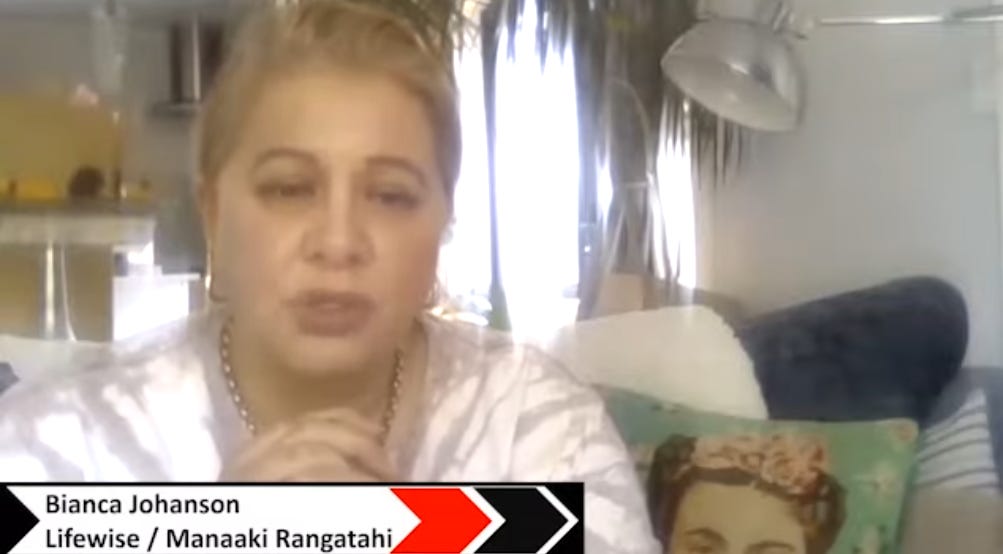Charity or paycheque?
The shameless grift behind “helping rangatahi” in NZ
Yesterday, I wrote about Willie Jackson’s tweet quoting Bianca Johanson, the Chief Executive of Manaaki Rangatahi Pou Arahi, a registered charity. On paper, it all looks noble - a mission to tackle youth homelessness, a Māori and Pasifika community focus, and a name wrapped in kaupapa Māori. But let’s rip off the mask and talk about what this actually looks like in practice: a case study in how to build a feel-good façade while raking in public donations and pocketing the taniwha’s share.
According to the Charities Services register, Manaaki Rangatahi (Registration No. CC60665) claims to exist for the public good. Their stated mission? To advance education, reduce poverty, and supposedly implement strategies and policies to end youth homelessness in Aotearoa.
Sounds great. Until you follow the money.
I decided to dig into their latest annual return for the year ending 31 July 2024. The numbers paint a damning picture. In that year alone, Manaaki Rangatahi reported receiving a tidy $435,362 in donations and koha, a hefty jump from the $295,083 received in 2023. That is nearly half a million dollars flowing into an organisation supposedly dedicated to helping at-risk rangatahi.
So how much of that was spent actually delivering services to these young people?
Just $81,687.
And how much went to employee remuneration and related expenses? A staggering $209,741. That is more than two and a half times what was spent on the actual services they claim to provide.
The charity is governed by a board of four trustees, but two names appear to be running the show: Bianca Johanson and Brook Turner. It does not take a forensic accountant to guess where a significant chunk of that $200k-plus in salaries is going.
They made zero donations themselves. It appears they did not funnel resources into other groups, shelters, or services. They took in nearly half a million dollars and spent less than a fifth of it on delivering help. The rest appears to have gone straight into overheads, which in this case look suspiciously like personal paycheques.
This is the scam. Dress up an organisation in te reo Māori, toss in the words “homelessness,” “youth,” and “Pasifika,” and watch the donations roll in. SkyCity, for instance, appears among their donors. How many of these donors know they are lining the pockets of people who deliver precious little in return?
This is not an isolated case. Aotearoa has a growing number of so-called charities that leverage the suffering of vulnerable communities, especially Māori youth, as a front for executive enrichment. The formula is simple: register a charity, build a feel-good narrative, then bleed it dry while offering minimal accountability.
It is exploitation, plain and simple. Not just of donors, although they are potentially being misled, but of the very people these groups claim to serve.
How much longer will this rort be allowed to continue under the protection of charitable status? How many more youth-focused initiatives will be hijacked by opportunists cashing in on public sympathy?
If Manaaki Rangatahi truly exists to serve the community, it is time they start proving it, not with words and radio interviews, but with transparent financials, genuine service delivery, and a pay structure that reflects purpose, not profit.
Until then, let’s call it what it is: a charity-shaped salary scheme.
t’s hard to ignore the timing of Bianca Johanson’s sudden appearance on RNZ, speaking out as the Chief Executive of Manaaki Rangatahi Pou Arahi. With Budget 2025 fresh off the press, one can’t help but wonder if her concern was less about the plight of homeless youth and more about the looming threat to her own income….






